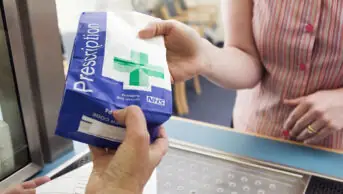
Shutterstock.com
The University of Leicester has launched a distance-learning pharmacist independent prescriber (IP) course, which it claims is the first in the UK.
In a statement published on 28 October 2022, the university said the course will require two in-person study days, which will be offered at multiple locations, and five days of interactive webinars.
In addition, the course includes 19 days of e-learning or directed learning, as well as 90 hours of learning in practice under the supervision of a designated prescribing practitioner (DPP).
The university has been contracted by Health Education England (HEE) to train 250 community pharmacists to be IPs each year through its distance learning course, with the first of two cohorts having started on 19 September 2022.
The next cohort will begin on 20 March 2023, and the university said it is aiming for “a minimum of two entry points per year”.
The course is designed for “any pharmacist wishing to train as an independent prescriber, in any UK location”, it said.
Applicants must be registered with the General Pharmaceutical Council (GPhC) or the Pharmaceutical Society of Northern Ireland (PSNI) and have indemnity insurance to cover their training as a prescriber.
The university said that “employer demand” had led it to develop the course.
David Wright, professor of health services research at the University of Leicester, who led the initiative to establish the prescribing programme, said: “[I am] delighted that, in response to a number of requests from community pharmacy employers, we have created a programme fit for any pharmacist wishing to train as an independent prescriber in any UK location.
“With an experienced team of pharmacist educators and prescribers delivering the course, I am confident that trainees will get a great learning experience.”
In August 2022, HEE announced funding for 3,000 pharmacist IP training places starting between September 2022 and March 2023 in England.
However, concerns have been raised that there may not be enough DPPs to support the increasing number of pharmacists wishing to train as IPs.
Debi Bhattacharya, the course director at the University of Leicester, said: “We have carefully designed the course to support trainees from diverse clinical and experiential backgrounds.
“The use of technology to make online learning interesting and interactive provides flexibility to the trainee by allowing them to choose when they want to learn, at their own pace.
“It has the added benefit of allowing trainees to maximise their time learning instead of travelling,” she continued.
In August 2022, NHS England announced plans to roll out “pathfinder” sites in each region of England to trial pharmacist independent prescribing services in 2023.
In Scotland, IP pharmacists lead the Pharmacy First minor ailments service, which launched on 29 July 2020, and allows community pharmacies to offer treatment to patients presenting with certain minor conditions.
In April 2022, Wales launched its own national Pharmacist Independent Prescribing Service.
From 2026, all graduates from the University of Leicester’s MPharm degree will be qualified IPs at the point of registration.
2 comments
You must be logged in to post a comment.



My question is: how does one receive funding for the course? Is it self funding or it is NHS funded?
How does the program help Locum pharmacist to get a DPP? Thanks
I am not representing the course or provider in any context but in response to your first question about funding I see on the website materials somewhere it says that you can self- or NHS-fund the course.
Your second question is of course one of the many difficulties practising Pharmacists are facing in accessing these courses in a supported way. There are huge barriers, as many of us know. Not least if you are full time and attempting to try to fit that course in around your working life. This is something that urgently needs to be addressed. Who wouldn't agree that proper support and protected time for most aspects of that course needs to be there and this needs to be addressed at a higher level now.